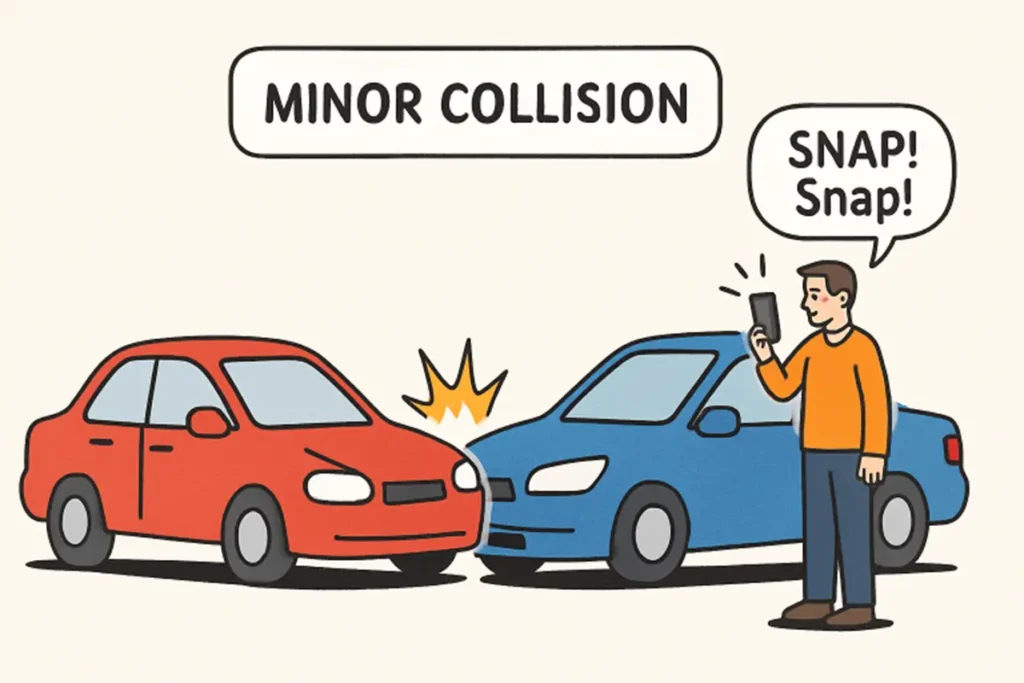Table of Contents
- Introduction
- Ensure Safety and Seek Medical Attention
- Contact Law Enforcement
- Document the Accident Scene
- Exchange Information with Other Parties
- Notify Your Insurance Company
- Be Cautious with Insurance Adjusters
- Understand the Statute of Limitations
- Consult a Personal Injury Attorney
- Conclusion
Car accidents can be traumatic and confusing, often leaving individuals unsure of what steps to take to protect their health, finances, and legal rights. In the immediate aftermath, knowing how to act can make a significant difference in the outcome of any claims or litigation. This guide outlines the essential actions you should take to safeguard your rights and pursue fair compensation should you be involved in a collision. If you are in Florida, speaking with a Tampa car accident attorney can help you navigate the local legal landscape after an accident.
Each action you take after a car accident—from seeking medical attention to gathering evidence and notifying insurance—helps build your case. Failing to follow the proper steps could negatively impact your ability to get the compensation you deserve, so it’s crucial to understand what to do and when. This detailed guide will walk you through everything you need to know to protect your legal rights from the moment an accident happens through the start of any potential legal proceedings.
Ensure Safety and Seek Medical Attention
The priority after any car accident is safety. Move to a safe location if possible and check for injuries among all parties. Call 911 if anyone is hurt or if there’s significant property damage. Even if you do not feel seriously injured, seek prompt medical attention. Many serious injuries, such as whiplash or concussions, may not show immediate symptoms, and a thorough medical evaluation creates crucial documentation for your case.
Obtaining a medical record that connects your injuries to the collision is an essential step for both your health and any insurance or legal claims. Not only does this establish a timeline, but it also prevents future disputes with insurance companies about the origin of your injuries. Delaying medical treatment may give insurers a reason to deny or reduce your claim.
Contact Law Enforcement
It’s essential to contact the police at the accident scene, even if the incident seems minor. Law enforcement will document the crash, gather statements from involved parties, and create an official report. This police report can be a decisive piece of evidence when determining fault, as well as a critical reference during claims negotiations and court proceedings. Make sure to ask how you can obtain a copy for your records.
Document the Accident Scene
If you can do so safely, gather evidence at the scene. Take photographs of all vehicles, focusing on damage, license plates, the position of cars, and road conditions. Capture photographs of surrounding signage, skid marks, glass, and any relevant debris. Collect the names and statements of any eyewitnesses, as their perspective can support your version of events if there are disputes later. Accurate documentation can be the difference between a successful claim and difficulty obtaining compensation. Keep these records organized along with any related expenses, such as medical bills or repair estimates.
Exchange Information with Other Parties
Share and obtain contact information from all drivers involved. Be sure to gather full names, phone numbers, driver’s license numbers, and insurance information, such as the provider’s name and policy number. Also, write down vehicle details, including make, model, color, registration, and VIN if possible. Never leave the scene without this information, as it is vital for both insurance claims and legal protection.
Notify Your Insurance Company
Promptly report the accident to your insurance provider, regardless of who was at fault. Provide all collected accident details, documentation, and be honest, but avoid speculating about fault or making statements that could be interpreted as an admission. Your insurer will explain your coverage, outline the following steps, and may request additional evidence. For more insights, you can review resources like Consumer Reports’ car insurance claim guide. Staying organized and responsive during this process helps ensure a smoother claim experience. Keep a record of all communications with your insurer for future reference and clarity.
Be Cautious with Insurance Adjusters
Once an insurance adjuster is assigned to your claim, remember that their job is to save the company money. Be truthful, but cautious when speaking with adjusters. You are not required to accept the first settlement offer, nor provide a recorded statement without consulting legal advice. If you are under pressure for a quick resolution, politely request time to assess all medical diagnoses and future expenses thoroughly. Consulting a legal professional before agreeing to any terms can help you avoid being undercompensated.
Understand the Statute of Limitations
Every state imposes a strict deadline—known as the statute of limitations—within which you must file a personal injury lawsuit. Missing these deadlines can forever forfeit your ability to recover compensation. For example, in Florida, the statute of limitations for injury claims is generally four years, but this varies by state and claim type. Always confirm your rights and keep detailed records to protect your claims.
Consult a Personal Injury Attorney
If you’ve sustained injuries or significant property damage, or if another party is disputing fault, consider seeking guidance from a personal injury attorney as soon as possible. An attorney can answer your questions, handle negotiations, compile documentation, and represent your interests in court. Skilled representation can help you receive fair compensation for medical costs, lost wages, and pain and suffering.
Conclusion
Navigating the aftermath of a car accident can be challenging, but taking the proper steps from the start can make all the difference. Prioritizing your safety, gathering evidence, and seeking professional guidance ensures that your rights are protected and your recovery is supported. Whether dealing with insurance claims or pursuing legal action, staying informed and proactive can help you secure the fair compensation you deserve and move forward with confidence.
Also Read–Tech Console DefStartup: Empowering Gaming Innovation


